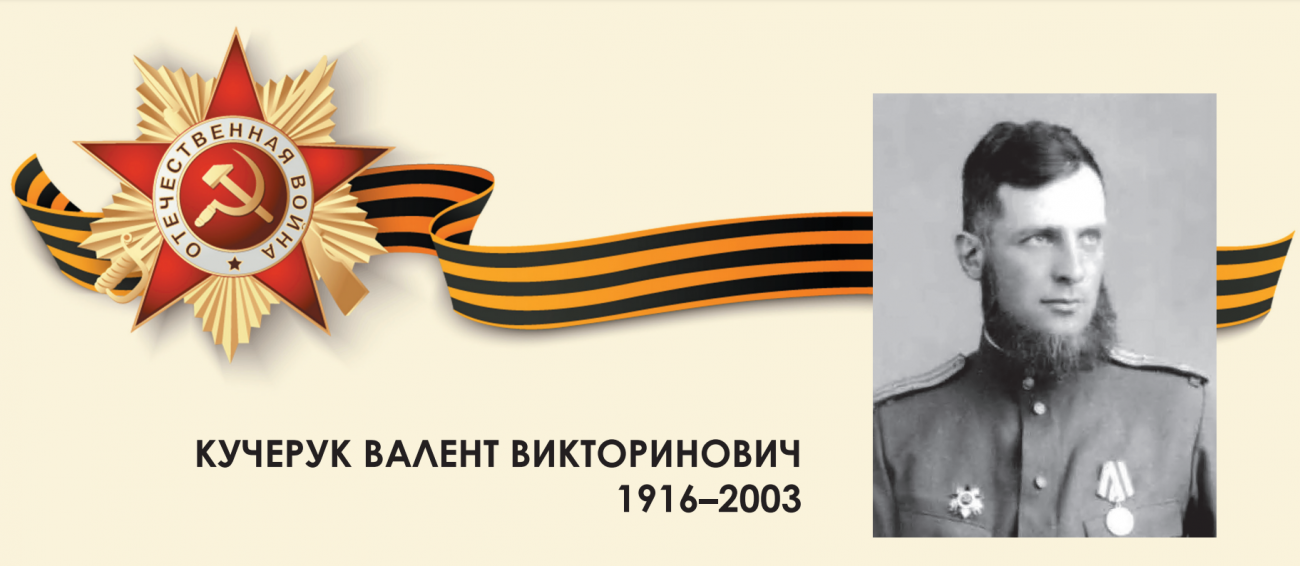
We continue to tell the stories of the employees of the IEE RAS who participated in the Great Patriotic War.
In 1934, Valent Viktorinovich Kucheruk entered the biology department of Moscow State University and immediately got involved in scientific work. He participated in field studies of natural foci of tularemia and plague, and also organized three expeditions to study tundra ecosystems in Yamal.
Kucheruk's published student works placed him among the outstanding medical zoologists, theriologists and ecologists of the country.
After graduating from the university, Valent Viktorinovich went to work in the Borzinsky department of the Chita anti-plague station, where he was by the time of the start of the Great Patriotic War. He served in the rank of senior lieutenant of the administrative service and held the position of leading zoologist of the front-line sanitary and epidemiological laboratory of the Transbaikal Front. Later, he became a senior specialist in the frontline anti-plague units working to suppress a major epidemic of pneumonic plague among the population of Inner Mongolia. He was the first to discover the plague epizootic of rats and organize their extermination. For the elimination of this outbreak, V.V. Kucheruk was awarded the Order of the Patriotic War, 2nd degree. The collected materials on epizootology later formed the basis of his PhD dissertation, defended in 1947.
In 1946, V.V. Kucheruk came to work at the Institute of Epidemiology, Microbiology and Infectious Diseases of the USSR Academy of Medical Sciences (later the N.F. Gamaleya Research Institute of Epidemiology and Microbiology), in the department of natural focal infections. In 1960, he defended his doctoral dissertation on the topic "Mammals of the Palearctic steppes, natural foci of plague in the steppe and some theoretical issues of the natural focality of this infection" and headed the laboratory of medical zoology, which he headed for more than 25 years. From 1970, for 15 years, he headed the department as a whole. From 1987 until the last days of his life, Valent Viktorinovich worked at the Institute of Evolutionary Morphology and Ecology of Animals (now the Institute of Ecology and Evolution of the Russian Academy of Sciences).
V.V. Kucheruk was one of the country's outstanding ecologists and theriologists. He was well aware of fundamental studies on the ecology and distribution of various mammal species, their role in tundra, steppe and desert ecosystems, as well as their interaction with vegetation, soil formation and microrelief. As an original zoogeographer, he made a significant contribution to the study of mammal faunal complexes and developed new principles of faunal analysis, which made it possible to implement modern zoogeographical zoning of the Palearctic.
V.V. Kucheruk was a major organizer of domestic medical and biological science and trained a small galaxy of numerous students and followers. He was a member of scientific councils and commissions of the USSR and RSFSR Ministry of Health, the USSR Academy of Sciences and Academy of Medical Sciences, for more than a quarter of a century he was the chairman of the USSR Academy of Medical Sciences problem commission "Natural focal infections in humans", and also vice-president and honorary member of the All-Union Theriological Society. Under his editorship, a series of collections "Fauna and Ecology of Rodents" were published, as well as a number of monographs, collections and meeting materials. V.V. Kucheruk was a member of the editorial board of the international journal "Folia Parasitologica", and from March 1979 to April 1987 he headed the editorial board of the journal "Medical Parasitology and Parasitic Diseases".
